Apricot Seeds For Cancer: Do They Really Work?
Get all the facts and learn the truth before considering these seeds for cancer management.
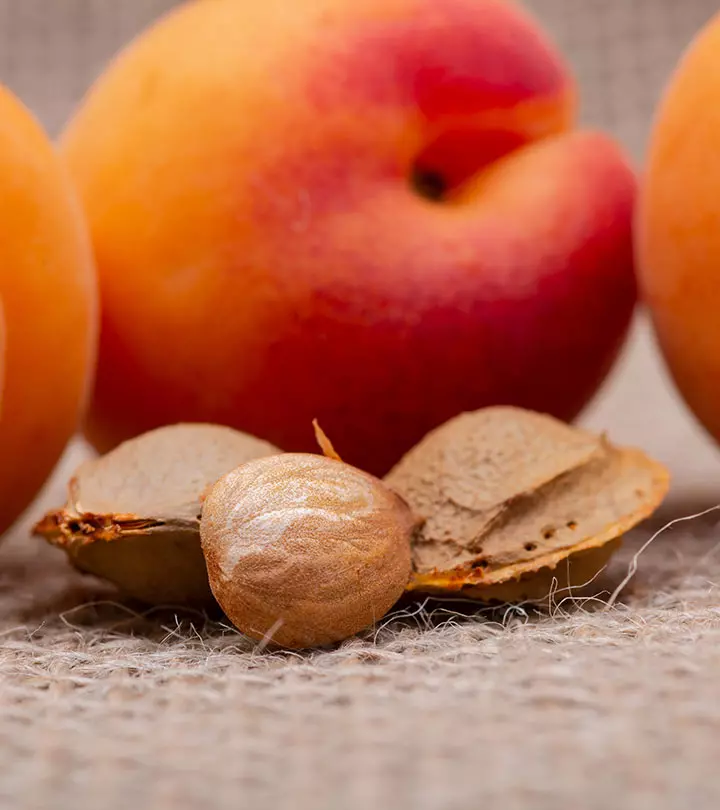
Image: Shutterstock
Apricots are scientifically known as Prunus armeniaca and belong to the Rosaceae family. They are commonly grown in India and Turkey. Apricot seeds are high in protein and fatty acids (1).
They are believed to help reduce cancer risk, but there is insufficient scientific data to back this claim. Moreover, there is a definite need for human trials in this regard.
Their seeds are also used to extract oil, which is then used in holistic medicine, shampoos, and perfumes.
Unfortunately, apricot seeds are toxic, courtesy of compounds like laetrile and amygdalin present in them. So, practice caution while consuming them.
In this article, we look at the health benefits of apricot seeds, their nutritional profile, their role in cancer prevention, and their daily recommended intake. So, let’s get started!
 Know Your Ingredient: Apricot seeds
Know Your Ingredient: Apricot seedsWhat Is It?
The single seed found within an apricot fruit.
What Are Its Benefits?
Apricot seeds contain amygdalin and other antioxidants which may prevent breast, colon, and liver cancers.
Who Can Consume It?
Can be used as an alternative cancer therapy for adults.
How Often?
3 small raw kernels or ½ large kernels daily after consultation with a doctor.
Caution
Overconsumption can lead to cyanide poisoning, which may cause symptoms like nausea, low blood pressure, pain, insomnia, and fatigue.
In This Article
What Nutrients Do Apricot Seeds Contain?
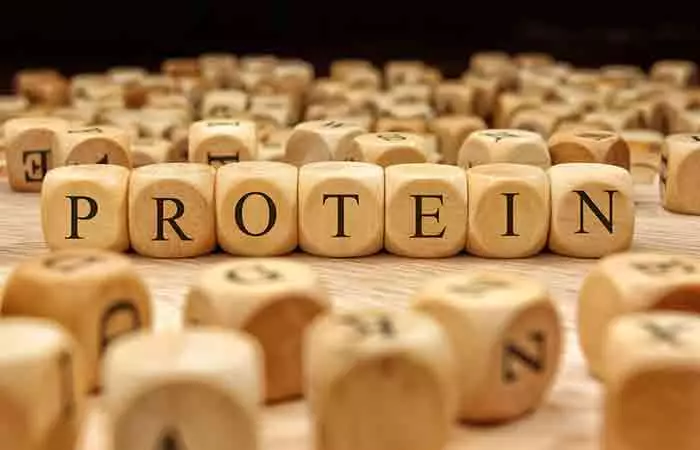
- Apricot seeds are rich in oil, which makes up for 50% of their total content. They also contain healthy unsaturated fatty acids such as linoleic, linolenic, and oleic acids (1).
- Around 25% of an apricot seed is protein, which is predominantly albumin (1).
- The total fiber content of an apricot seed is only 5% (1).
- Apricot seeds provide nutrition in the form of amygdalin (vitamin B17) in the highest concentration. It is considered to be one of the most essential enzymes found in apricot kernels (1).
If you follow the experts’ advice regarding various apricot benefits, its seeds will surely catch your attention, thanks to all the nutrients it has. However, there is a lot of debate surrounding consuming apricot seeds. It is believed that it could be fatal. Let’s check out the facts below.
Will Eating Apricot Seeds Kill You?

Chronic ingestion of apricot kernels is reported to cause cyanide toxicity (2). Apricot seeds contain various toxins such as cyanide, amygdalin (a cyanogen), and β-glucosidase (an enzyme catalyst) (2), (3), (4).
Biting on the seeds hydrolyzes amygdalin and β-glucosidase, which increases the toxicity of apricot kernels (5). Several cases of cyanide poisoning caused by the ingestion of apricot kernels have been reported (5), (6).
Annals of Tropical Paediatrics also published a retrospective diagnostic study on cyanide toxication caused by eating apricot seeds in 13 children (7).
Though the symptoms may not appear immediately, toxic effects such as nausea, headaches, lethargy, insomnia, lowering of blood pressure, and pain in muscles and joints have been reported (8).
A few cases of death, especially in children, have also been reported (9). The FDA has deemed it unsafe as both a food and a drug (10).
So, here is the most important question…
Can Apricot Seeds Help Treat Cancer?

Laetrile or vitamin B17 is a synthetic form of amygdalin. It is a cyanogenic glycoside present in apricot seeds. Laetrile has been used to treat cancer as an alternative therapy (11).
In an in vitro study published in Food Science and Biotechnology, it was reported that the extracts of sweet apricot and bitter almond kernels have antioxidant, antimicrobial and antitumor properties. It states that apricot extracts can prevent the growth of human breast, colon, and hepatocellular (liver) cancer cell lines (12).
An in vitro study has reported the possibility of using apricot kernels as a part of dietary anticancer therapies. It was observed that the amygdalin present in apricot seeds could suppress the development of cancer in HT-29 colon cancer cells (13).
Amygdalin has been reported to induce apoptosis (cell death) in cancer cells by inhibiting the cell cycle. The authors claim that it is a “mistaken belief” that amygdalin causes cyanide toxicity (14). However, clinical trials are still required to prove these effects on humans.
A systematic review of 36 studies found that the data available on the potential benefits of laetrile (found in apricots seeds) for cancer treatment is inconclusive (15). But always consult your doctor before trying natural remedies as these seeds may not be the only alternative medicine for cancer treatment.
Several research review articles have claimed the anticancer effects of amygdalin or laetrile to be fraudulent due to lack of valid clinical data (16), (17).
Since most of the information available on the anticancer effect of apricot seeds is anecdotal, the success rate of this therapy has not been reported in the public domain.
 Did You Know?
Did You Know?The mixed research claims and reports of toxicity of apricot seeds make them a less than ideal treatment for cancer. Even the National Cancer Institute (NCI) does not approve of them (18).
Donavon Bebo, a YouTuber, used apricot seeds with Rick Simpson oil as preventive maintenance for his cancer and shared the results in one of his videos: “Rick Simpson oil and the apricot kernels that I was taking for the last two months didn’t cure my cancer, but they slowed it down to where it was. It did not spread (i).”
Though there are mixed reports about the cyanide toxicity of apricot seeds, you can consume them in small amounts. Find out how in the next section.
How To Eat Apricot Seeds?
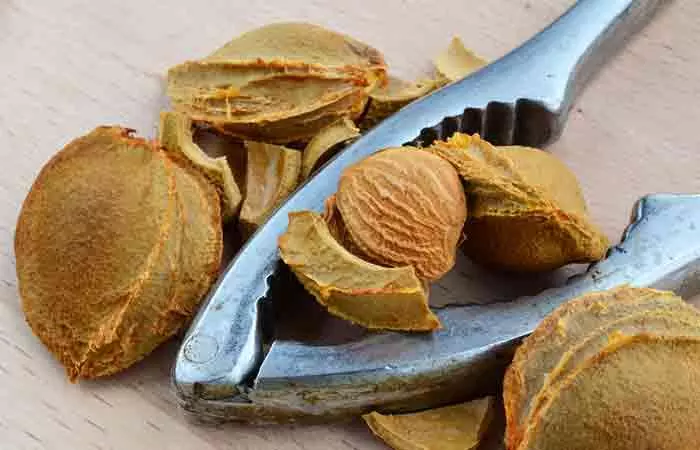
The pit found in the center of the apricot fruit contains the seed or kernel. Remove the apricot pit from the fruit. Use a nutcracker to open the pit and expose the seed. Throw away the pit and eat the seeds. Consult a doctor immediately if you experience any side effects, such as nausea or dizziness.
How Many Apricot Seeds Should You Eat A Day?
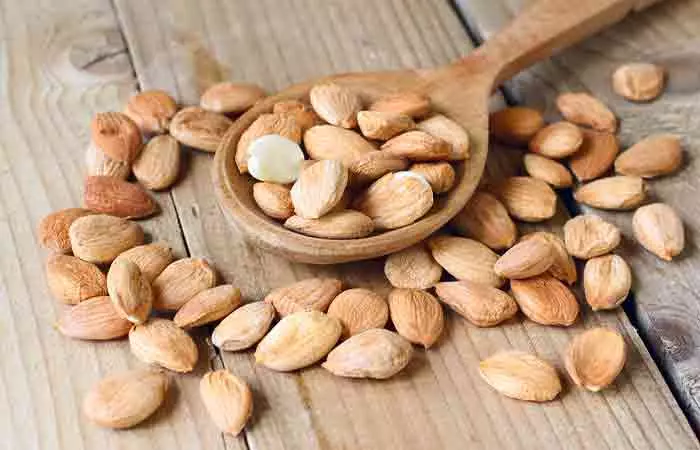
There is no accurate recommended dosage available as it depends on many factors, such as the age, weight, and health of the person consuming apricot seeds.
However, the European Food Safety Authority has reported that adults should not consume more than 3 small raw apricot kernels or half of one large kernel, and toddlers should avoid it completely. The presence of cyanide in the apricot kernels can be fatal to children as the toxicity of cyanide is dependent on body weight (8)
 Quick Tip
Quick TipSince most evidence for the use of apricot for cancer is anecdotal, its success rate is unclear. But what is the history behind this treatment method? Find this out in the next section.
Historical Context Of Apricot Seeds In Cancer Treatment
The use of apricot seeds as a purported cancer treatment gained attention after the discovery of Amygdalin. This natural substance was first discovered by two French chemists in 1830. Amygdalin is naturally found in the seeds of many fruits, including apricots. In 1845, this substance was used in Russia to treat cancer with the first patient showing good results. Its use gained popularity in the USA around the 1920s when Amygdalin was made available as an oral pill. Later on, its use was stopped, as it was considered toxic. However, a new version of amygdalin was patented in the 1950s. This intravenous drug was called Laetrile and was believed to be safer (20).
Infographic: How To Add Apricot Seeds To Your Diet
Apricot seeds are rich in essential nutrients, making them an excellent addition to your diet. We have listed a few ways to add apricot seeds to your diet. However, ensure you don’t consume them beyond the recommended amount. Check out the infographic below to know more! Illustration: StyleCraze Design Team
Apricot seeds are nutrient-dense. They are packed with phytochemicals that have a potential role in cancer treatment. They are also a good source of fatty acids, vitamins, and dietary fiber. The seeds also contain amygdalin, a compound that may possess anti-cancer properties. Nevertheless, one must be wary of the cyanide in the seeds. Overindulging in the seeds may cause cyanide poisoning. The severity of symptoms varies with a person’s age and weight. Apricot seeds may also cause headaches, dizziness, nausea, vomiting, increased heart rate, and breathing difficulties. Also, amygdalin is thought to inhibit cancer cells by an unknown mechanism. The associated studies are not extensive enough to support the use of apricot seeds in cancer treatment.
Frequently Asked Questions
Do apricot seeds contain arsenic?
There is no data available on the presence of arsenic in apricot seeds. However, they contain a toxin called amygdalin that releases cyanide, which is fatal to humans and cattle. So, do not ingest more than 3 apricot seeds in a day.
Can you take apricot seeds with chemo?
The anticancer effect of apricot seeds has not been scientifically proven. They should be avoided with chemotherapy and otherwise. Always consult a licensed medical practitioner before consuming apricot seeds.
Is apricot seed the same as almond?
No, an apricot seed is the kernel found in the pit of the apricot fruit. An almond is a nut commonly consumed for the many health benefits it provides.
Do you need to soak apricot kernels?
It is not necessary to soak apricot kernels before cooking. However, raw kernels can be toxic for consumption, even in small amounts (20).
Does cooking apricot kernels remove cyanide?
Cooking apricot kernels helps remove harmful substances (20). Soaking, boiling, and deskinning may help remove cyanide from them.
How do you store apricot seeds?
In a fridge or cellar with adequate protection against moisture.
How long do apricot seeds last?
Apricot seeds can last up to 2 years in a refrigerator.
Key Takeaways
- Apricot seeds possess antioxidant properties that are beneficial for preventing cancer.
- Apricot seeds are rich in fatty acids.
- Consuming apricot seeds for a continued period may lead to toxicity in the body and cause nausea.
- Children are recommended to avoid apricot seeds due to its toxic content (presence of compounds like laetrile and amygdalin).
Illustration: Apricot Seeds For Cancer: Do They Really Work?
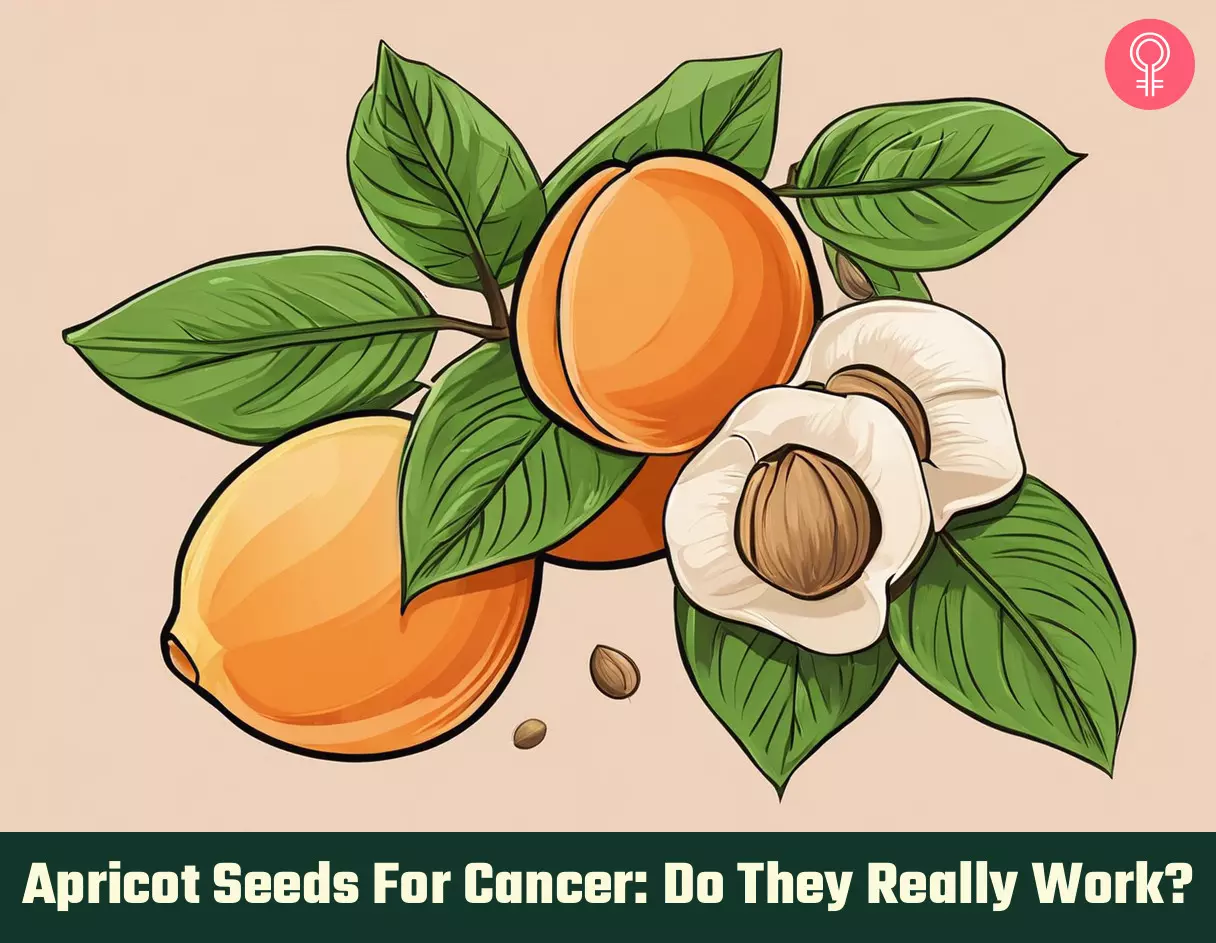
Image: Stable Diffusion/StyleCraze Design Team
References
Articles on StyleCraze are backed by verified information from peer-reviewed and academic research papers, reputed organizations, research institutions, and medical associations to ensure accuracy and relevance. Read our editorial policy to learn more.
- Utilization of wild apricot kernel press cake for extraction of protein isolate, Journal of Food Science and Technology, US National Library of Medicine, National Institutes of Health.
https://www.ncbi.nlm.nih.gov/pmc/articles/PMC3551129/ - An unusual presentation of chronic cyanide toxicity from self-prescribed apricot kernel extract, BMJ Case Reports, US National Library of Medicine, National Institutes of Health.
https://pubmed.ncbi.nlm.nih.gov/28893740/ - Cyanide ion, PubChem, National Center for Biotechnology Information, US National Library of Medicine, National Institutes of Health.
https://pubchem.ncbi.nlm.nih.gov/compound/Cyanide-ion - Amygdalin, PubChem, National Center for Biotechnology Information, US National Library of Medicine, National Institutes of Health.
https://pubchem.ncbi.nlm.nih.gov/compound/Amygdalin - Acute cyanide toxicity caused by apricot kernel ingestion, Annals of Emergency Medicine, US National Library of Medicine, National Institutes of Health.
https://pubmed.ncbi.nlm.nih.gov/9832674/ - Severe cyanide poisoning from an alternative medicine treatment with amygdalin and apricot kernels in a 4-year-old child, Wiener Medizinische Wochenschrift, SpringerLink.
https://link.springer.com/article/10.1007/s10354-014-0340-7 - Cyanide poisoning caused by ingestion of apricot seeds, Annals of Tropical Paediatrics, Taylor & Francis Online.
https://www.tandfonline.com/doi/abs/0.1179/146532810X12637745451951 - Apricot kernels pose risk of cyanide poisoning, European Food Safety Authority.
https://www.efsa.europa.eu/en/press/news/160427 - Multiple Cases of Cyanide Poisoning by Apricot Kernels in Children from Gaza, Pediatrics, AAP News & Journals Gateway.
https://pediatrics.aappublications.org/content/68/1/5.short - Natural Toxins in Food
https://www.fda.gov/food/chemical-contaminants-metals-pesticides-food/natural-toxins-food - Molecular mechanism of amygdalin action in vitro: review of the latest research, Immunopharmacology and Immunotoxicology, Taylor & Francis Online.
https://www.tandfonline.com/doi/abs/10.1080/08923973.2018.1441301 - In vitro antioxidant, antimicrobial, and antitumor activities of bitter almond and sweet apricot (Prunus armeniaca L.) kernels, Food Science and Biotechnology, SpringerLink.
https://link.springer.com/article/10.1007/s10068-013-0101-1 - The anti-proliferative effect of apricot and peach kernel extracts on human colon cancer cells in vitro, BMC Complement Alternative Medicine, US National Library of Medicine, National Institutes of Health.
https://bmccomplementmedtherapies.biomedcentral.com/articles/10.1186/s12906-019-2437-4 - Amygdalin from Apricot Kernels Induces Apoptosis and Causes Cell Cycle Arrest in Cancer Cells: An Updated Review, Anti-cancer Agents in Medicinal Chemistry, US National Library of Medicine, National Institutes of Health.
https://pubmed.ncbi.nlm.nih.gov/29308747/ - Laetrile for cancer: a systematic review of the clinical evidence, Supportive Care in Cancer, SpringerLink.
https://link.springer.com/article/10.1007/s00520-006-0168-9 - The case against laetrile: the fraudulent cancer remedy, Cancer, US National Library of Medicine, National Institutes of Health.
https://pubmed.ncbi.nlm.nih.gov/6986971/ - Amygdalin, quackery or cure?, Phytomedicine, US National Library of Medicine, National Institutes of Health.
https://pubmed.ncbi.nlm.nih.gov/27002407/ - Laetrile/Amygdalin (PDQ®)–Patient Version, National Cancer Institute, National Institutes of Health, US Department of Health and Human Services.
https://www.cancer.gov/about-cancer/treatment/cam/patient/laetrile-pdq#link/ - Cancer
https://www.who.int/news-room/fact-sheets/detail/cancer - Laetrile/Amygdalin (PDQ®)
https://www.ncbi.nlm.nih.gov/books/NBK65988/ - Safety of apricot kernels
https://www.sfa.gov.sg/food-information/risk-at-a-glance/apricot-kernels
Read full bio of Tracy Tredoux
Read full bio of Ravi Teja Tadimalla
Read full bio of Arshiya Syeda
Read full bio of Aparna Mallampalli





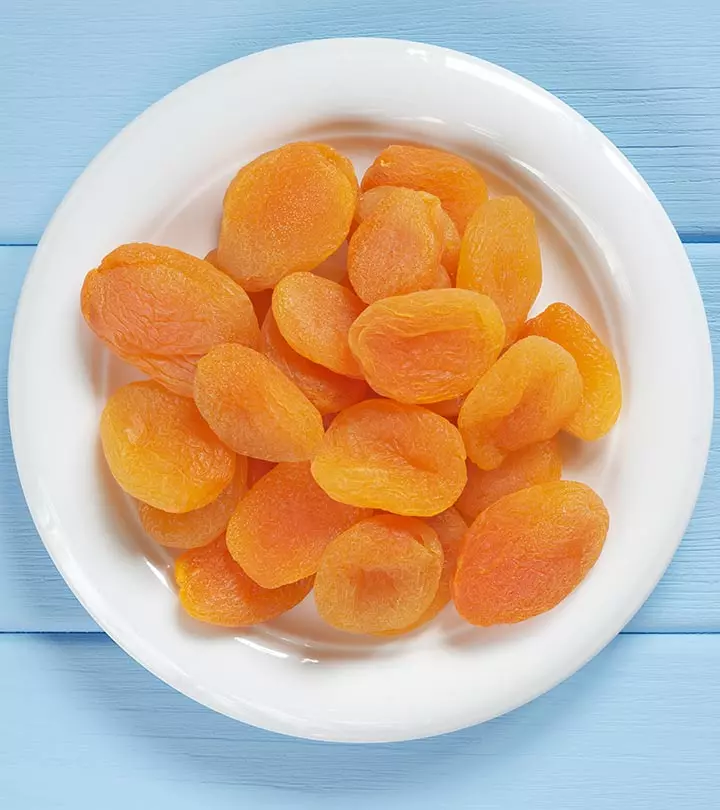
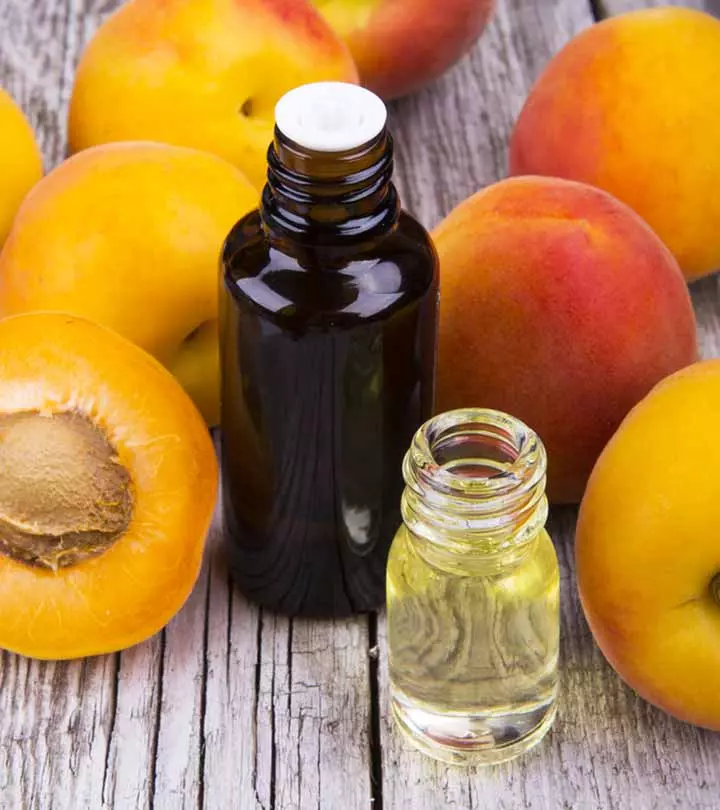
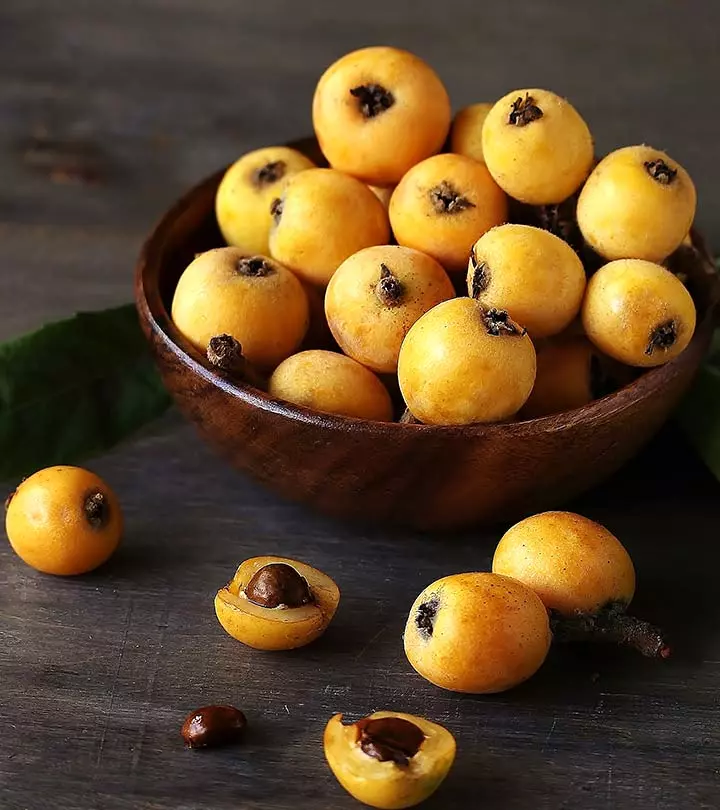
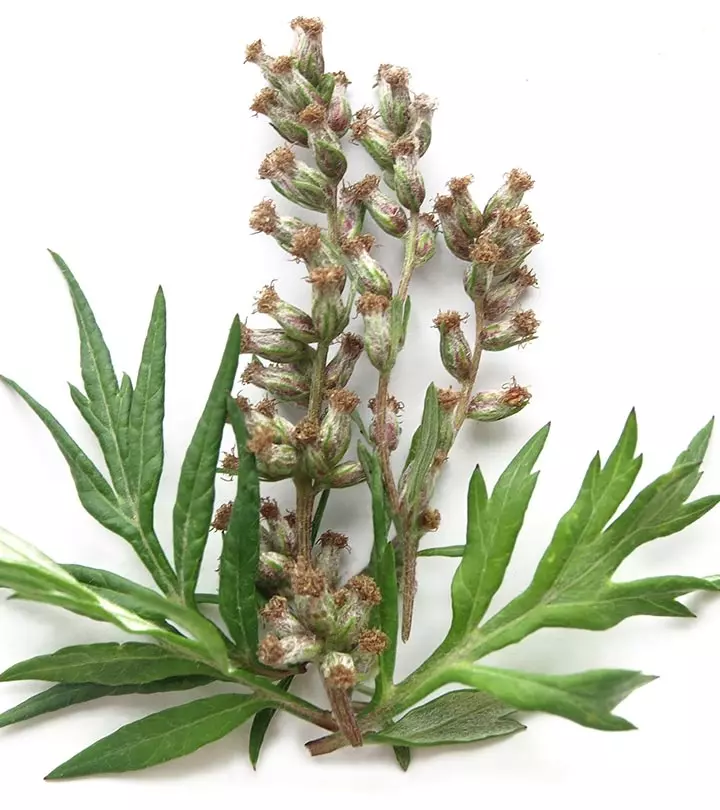

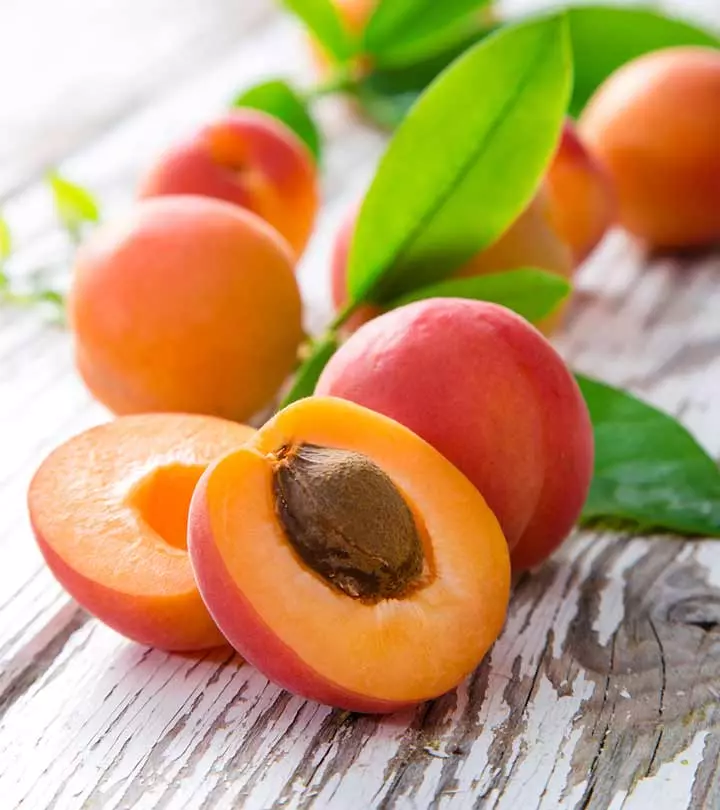
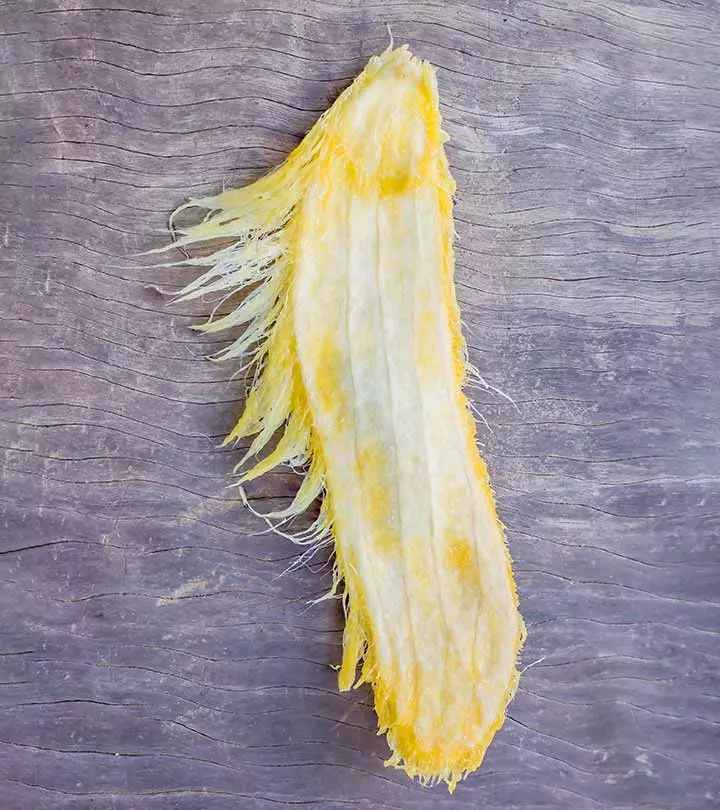


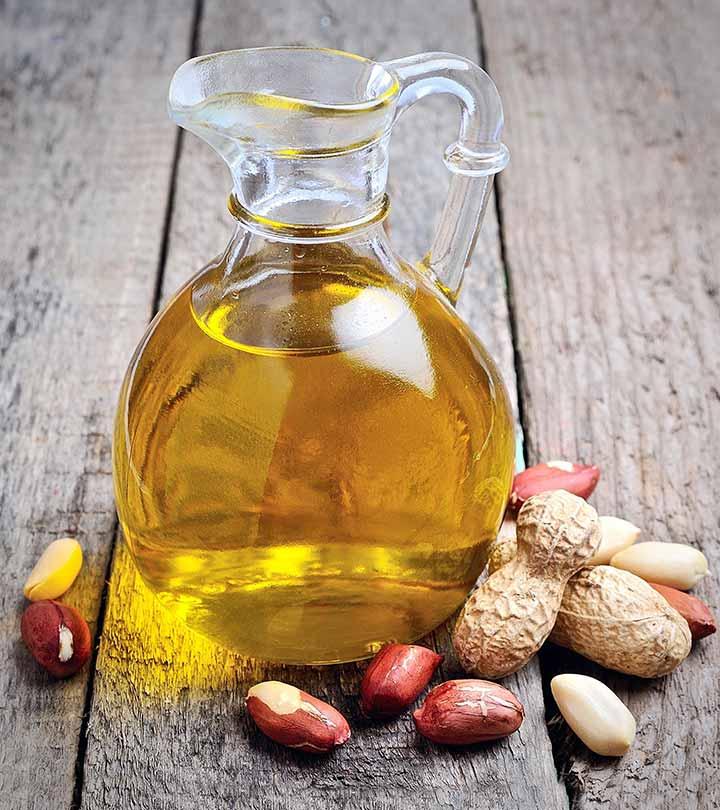
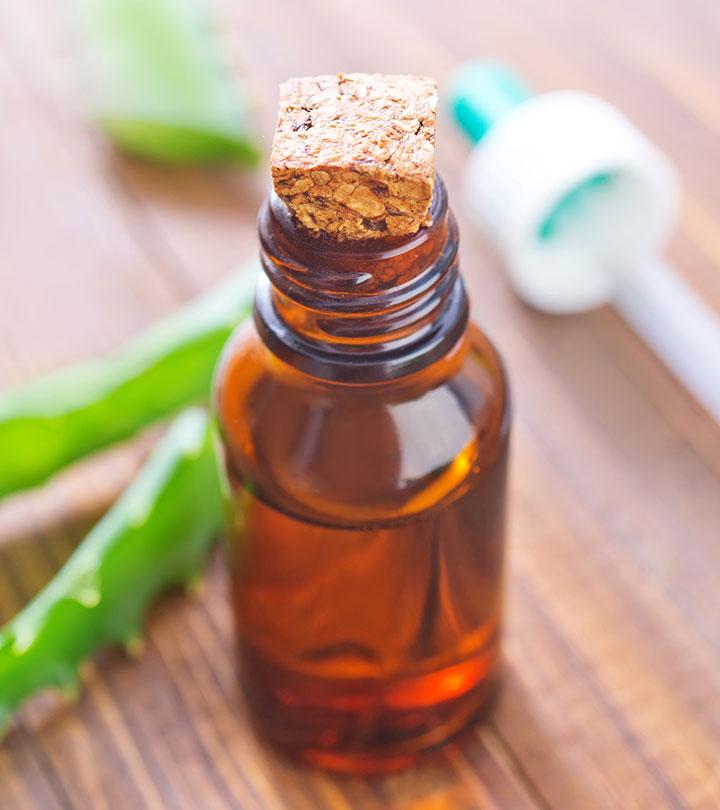
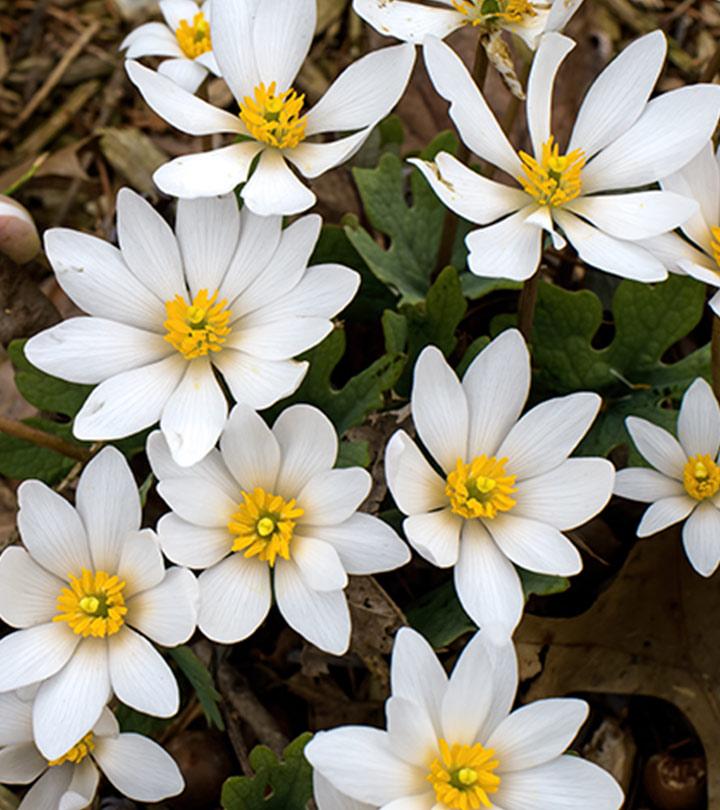
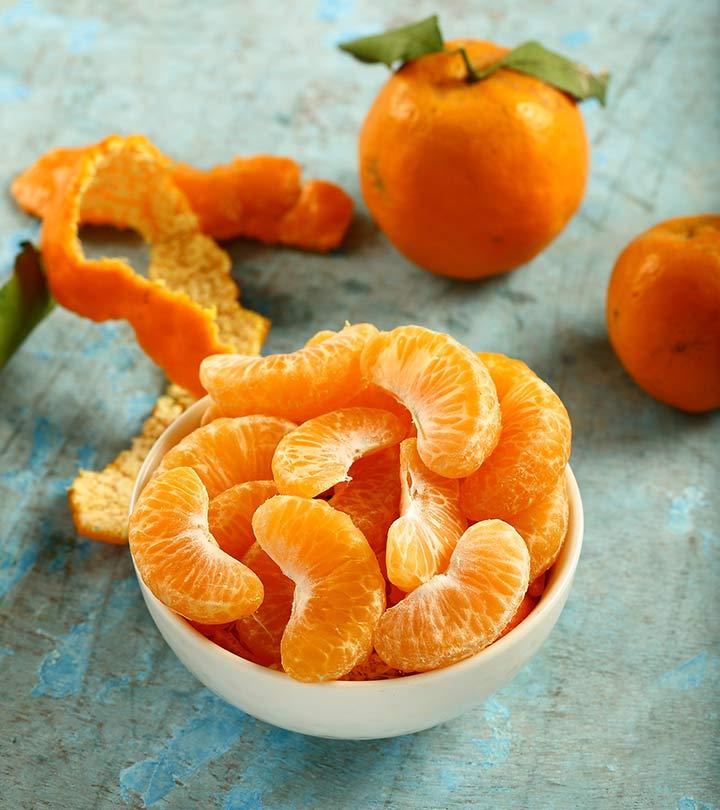
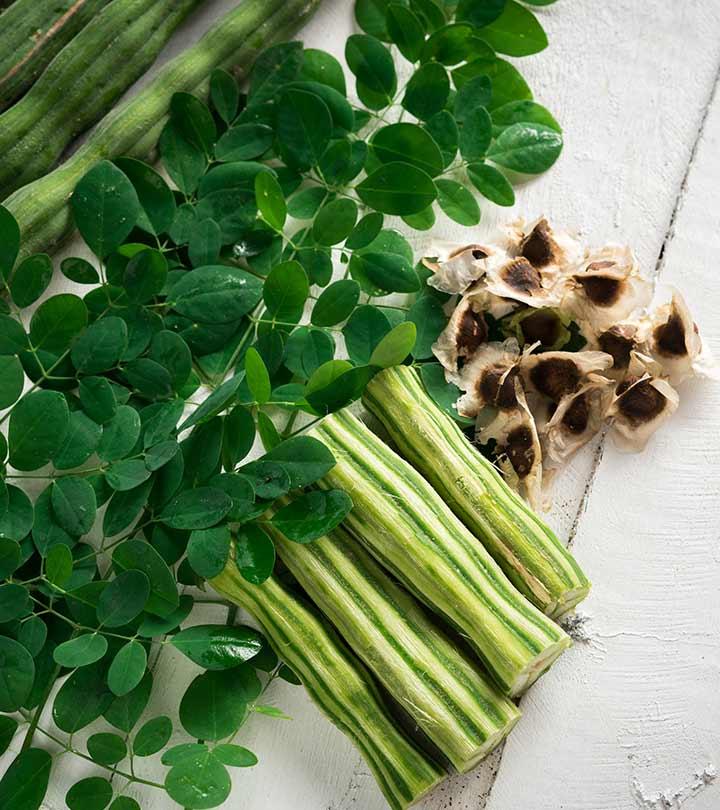
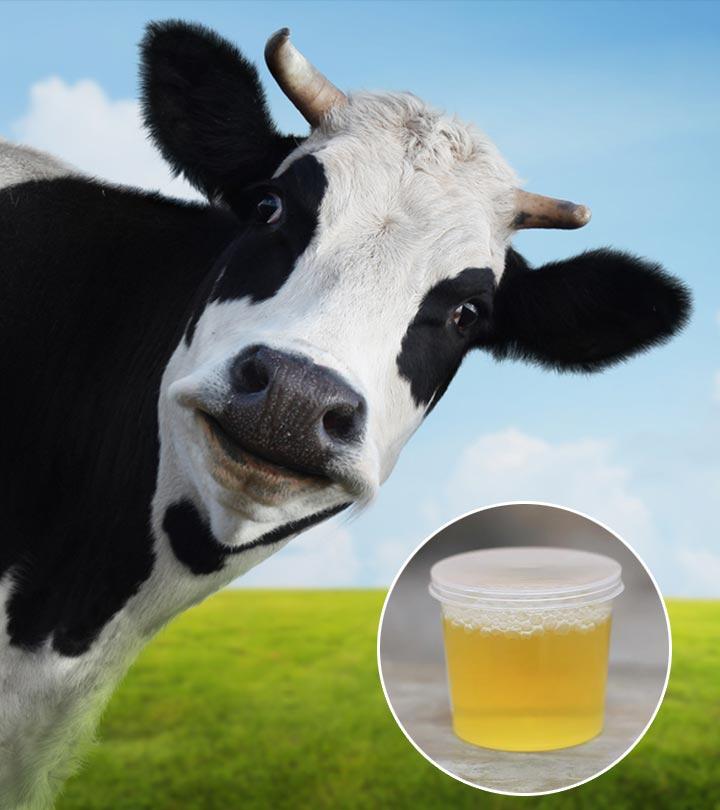
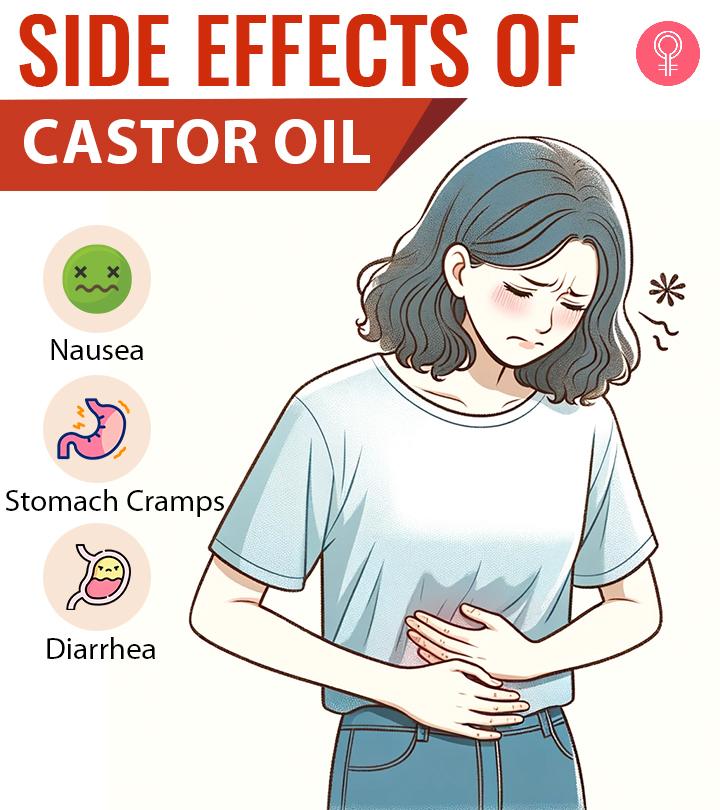
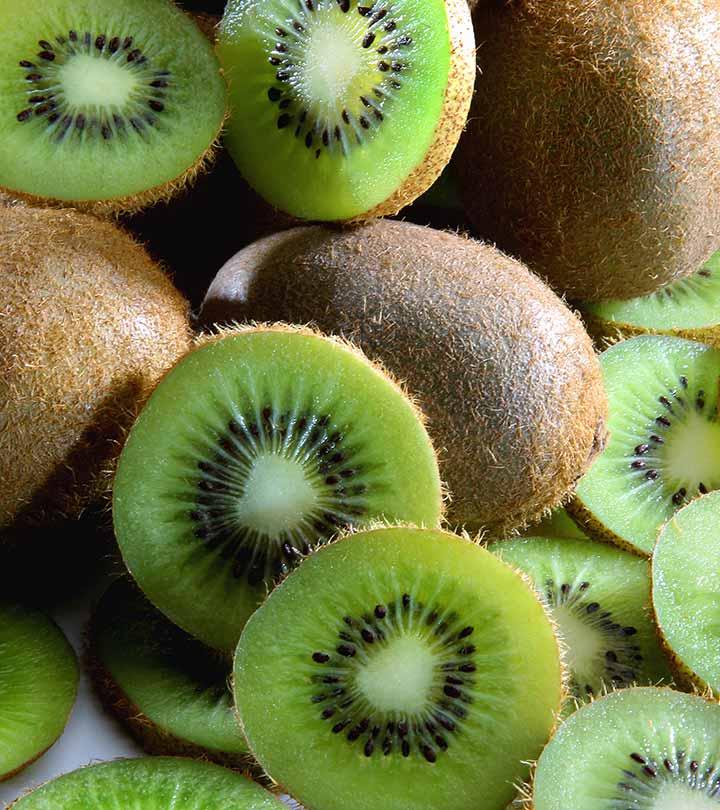
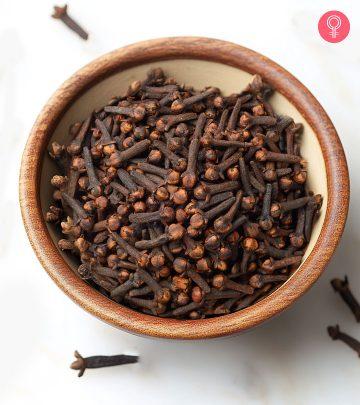

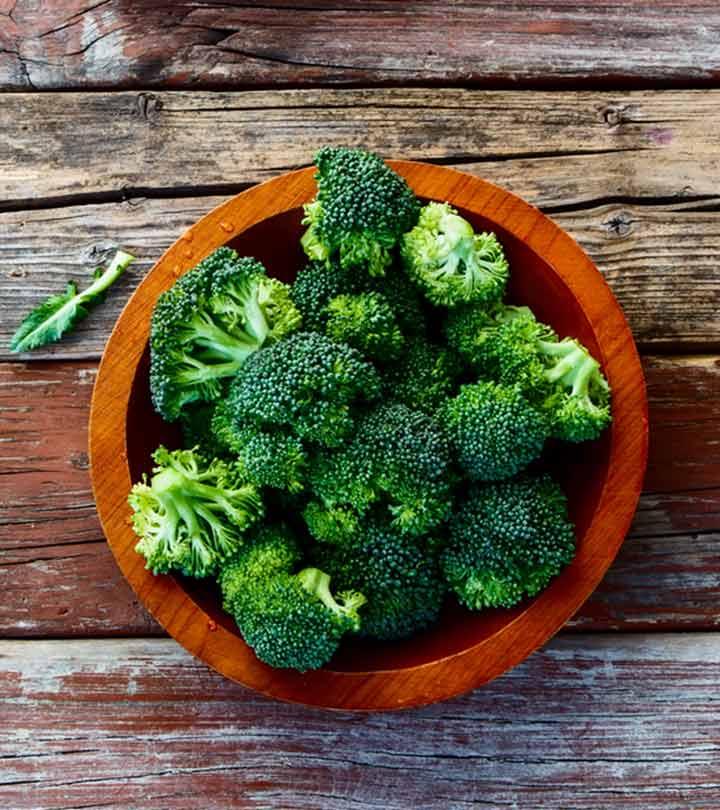

Community Experiences
Join the conversation and become a part of our empowering community! Share your stories, experiences, and insights to connect with other beauty, lifestyle, and health enthusiasts.